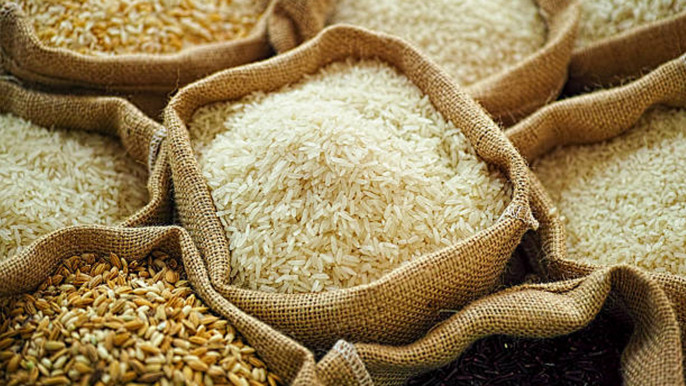Tags
Rice imports lag despite zero tariff
Ministry says high price, new paddy deter traders.

Despite approval for the import of 1.052 million metric tonnes of rice, letter of credits (LCs) to import only 9,500 metric tonnes have been opened, according to Food Ministry Secretary Md Masudul Hasan.
Even after the government withdrew the 62.5% tax and duty on rice imports, private traders have shown little interest in importing rice.
These details were shared during a press conference this afternoon (14 November) at the Directorate General of Food, discussing the ongoing Aman procurement efforts.
“We have granted import permission to 134 traders,” said Food Ministry Secretary Md Masudul Hasan.
“Of the 1.052 million metric tons approved for import, LCs have only been opened for 9,500 metric tons, and almost all of this rice has entered the country,” he added.
“Due to the increased prices, we are negotiating with neighbouring countries, including Myanmar, requesting them to lower rice prices for our government imports,” said Food Ministry Adviser Ali Imam Majumder.
On 29 October, the Tariff Commission recommended that the National Board of Revenue (NBR) withdraw all taxes on rice imports due to rising global prices.
Consequently, the Internal Resources Division of the Ministry of Finance issued a notice on 31 October, removing all tariffs on the import of parboiled and atop rice.
The food ministry then set a deadline of 14 November for private imports.
However, despite receiving import permissions, traders are not showing interest in importing rice, according to sources at the ministry.
The Aman rice harvest season has begun, and with new paddy entering the market, prices may drop, possibly causing reluctance among traders to proceed with imports.
Majumder further noted, “Flooding in Feni and Noakhali and other areas has impacted rice production. Initially, the agriculture ministry estimated a 1 million-tonne production loss but later adjusted this to approximately 600,000 to 700,000 tonnes. To address this shortfall, we initiated prompt public and private import processes, reducing tariffs to zero. Fortunately, the Agriculture Department has reported a bumper harvest in the northern region. If production remains strong, we might be in a more favourable position.
“With rising production costs, we’ve increased the procurement price for paddy to ensure farmers receive fair compensation. From Sunday, we will start procuring paddy directly from farmers in the northern region,” he added.
On the country’s food stock, Majumder stated, “While we are not in a highly comfortable zone, we are actively procuring Aman rice and paddy to boost stocks. Import processes will also continue swiftly.”
Currently, the government has a stockpile of 1.288 million metric tonnes of food, including 439,000 metric tonnes of wheat, with the remainder being rice.
In response to questions from journalists about the government’s efforts to reduce high rice prices affecting consumers, Majumder said, “I’m a middle-class consumer myself and manage my household groceries, so I understand the pressure. The recent floods have also impacted winter vegetables.”
https://www.tbsnews.net/bangladesh/rice-imports-lag-despite-zero-tariff-992791Published Date: November 14, 2024






